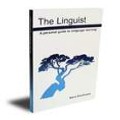Canada is an interesting example of a country where cultures are mixing and a new identity is emerging. Perhaps Canada is at the same stage in its evolution as older societies in Europe or Asia were one thousand or several thousand years ago. Over the last fifty years, Canada has absorbed many different peoples who are today united through their common language, either English or French. The process of blending in can take time, but today a "native speaker" of Canadian English can be of African, East Asian, South Asian, Mediterranean, Northern European, First Nation or any other single or mixed origin. My own case is an example of the impermanent nature of national identity. My parents were born into a German speaking Jewish community in the Austro-Hungarian Empire in an area that subsequently became Czechoslovakia and then the Czech Republic. My parents moved to Sweden in 1939. I was born in 1945 in Sweden and my family moved to Montreal in 1951.
My national identity is Canadian, specifically English Canadian. However, depending on different historical factors beyond my control, I could just as easily have ended up Austrian, Czech, Swedish, Israeli, or a French speaking Quebecois. Despite accelerated globalization, national or regional identities are not disappearing, and in fact may be getting stronger. However, today we have more freedom to choose our identity.
We are all individual human beings. We can share in different identities and understand different cultures. We are stamped by our native culture but this is an accident of history. It cannot limit us. As individuals we have the opportunity and, I would say the responsibility, to explore other cultures. The best way to do that is through language.

